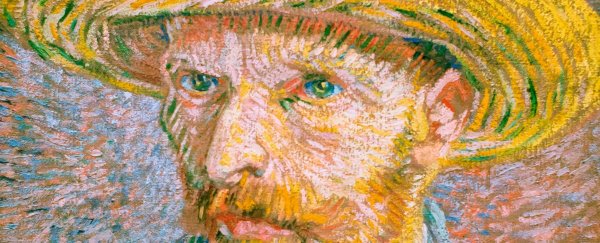Mental illnesses such as schizophrenia and bipolar disorder may share some genetic roots with creativity, new research suggests.
After looking at genetic data taken from more than 150,000 people, researchers have found that those in artistic and creative careers are more likely to carry genes that predispose them to a risk of mental illness than non-creative professionals. But the study, which is published in Nature Neuroscience, has been met with plenty of healthy scepticism, not least of all due to the researchers' definition of 'creativity'.
This isn't the first time that a genetic link between mental illness and creativity has been suggested. Historically, many of society's most brilliant minds also struggled with mental issues, helping to enforce the stereotype of the 'tortured artist', and a range of studies over the years has also helped to support the link. However, genetic evidence has been pretty patchy up until now.
In the new research, a team of scientists from biopharmaceutical company deCODE genetics in Iceland looked at data taken from 86,000 Icelandic people.
They found that individuals who worked in an artistic profession or who belonged to a national artistic society were 17 percent more likely to carry genetic variants linked to bipolar disorder or schizophrenia than other members of the public.
The team then replicated their research with data taken from people in the Netherlands and Sweden, and found that, in this subset, creatives were nearly 25 percent more likely to carry the mental disorder genes than their non-creative peers.
"This could not be accounted for by increased relatedness between creative individuals and those with psychoses, indicating that creativity and psychosis share genetic roots," the authors write in Nature Neuroscience.
But critics of the study now question whether we can really classify someone as creative simply by their profession, and whether the genetic links found are all that significant, as Arielle Duhaime-Ross writes for The Verge:
"But here's the thing: the increase in risk can be kind of misleading. Together, the variants used the study only explain about 6 percent of schizophrenia and 1 percent of bipolar disorder, according to a graph in the study. And these same variants only explain about one-quarter of 1 percent of artistic ability."
In other words, the genes that predict risk of mental illness might help make people a tiny bit more creative, but something else - whether genes or environmental factors - must be involved to get them the rest of the way.
"There is a link, and it is astonishingly weak in the sense that most people would care about," population geneticist David Culter from Emory University in the US, who wasn't involved in the study, told Duhaime-Ross.
However, CEO of deCODE Kari Stefansson hopes that the results will help put mental illness in a positive light for once.
"To be creative, you have to think differently," Stefansson told Ian Sample over at the Guardian. "And when we are different, we have a tendency to be labelled strange, crazy and even insane."
